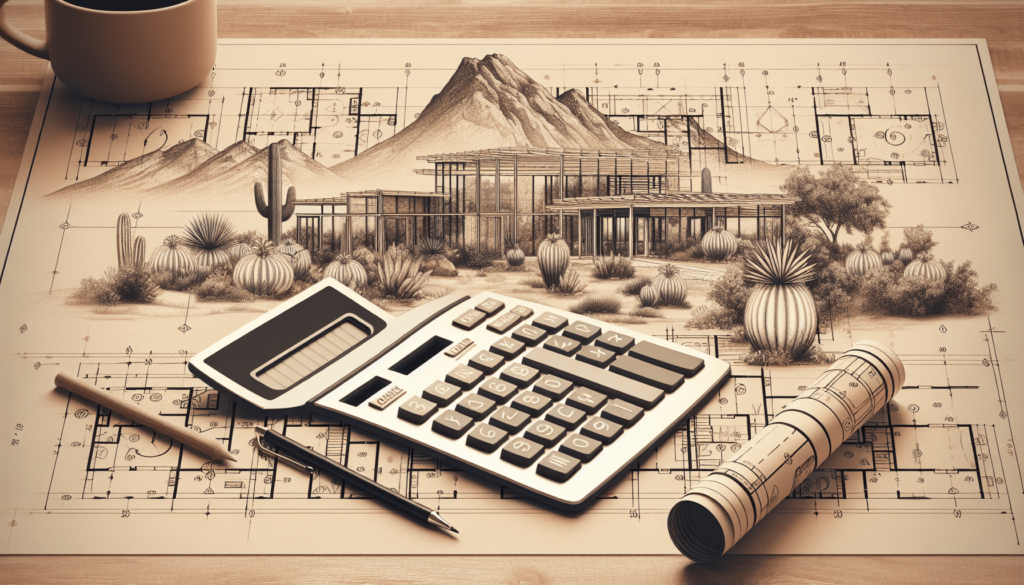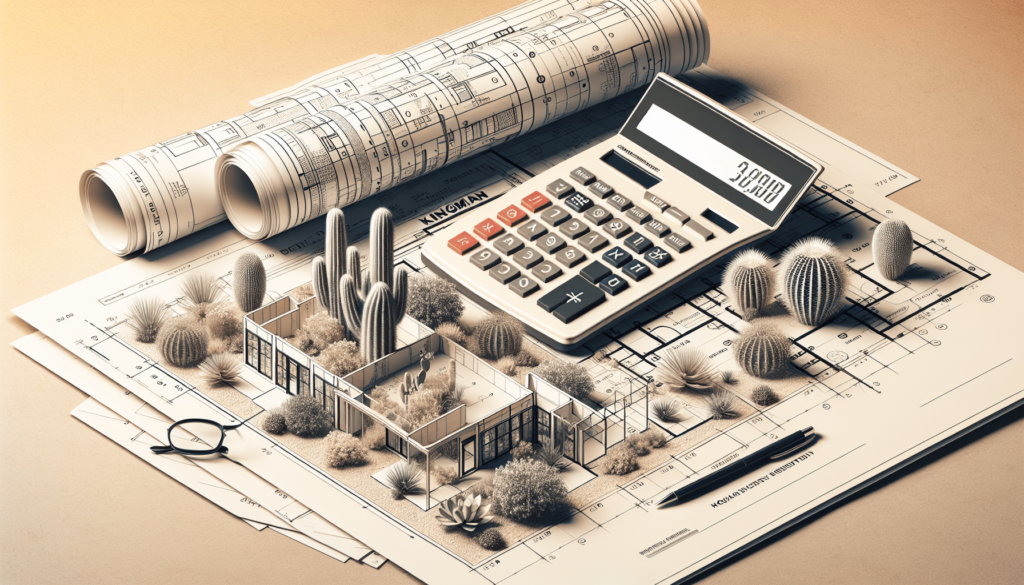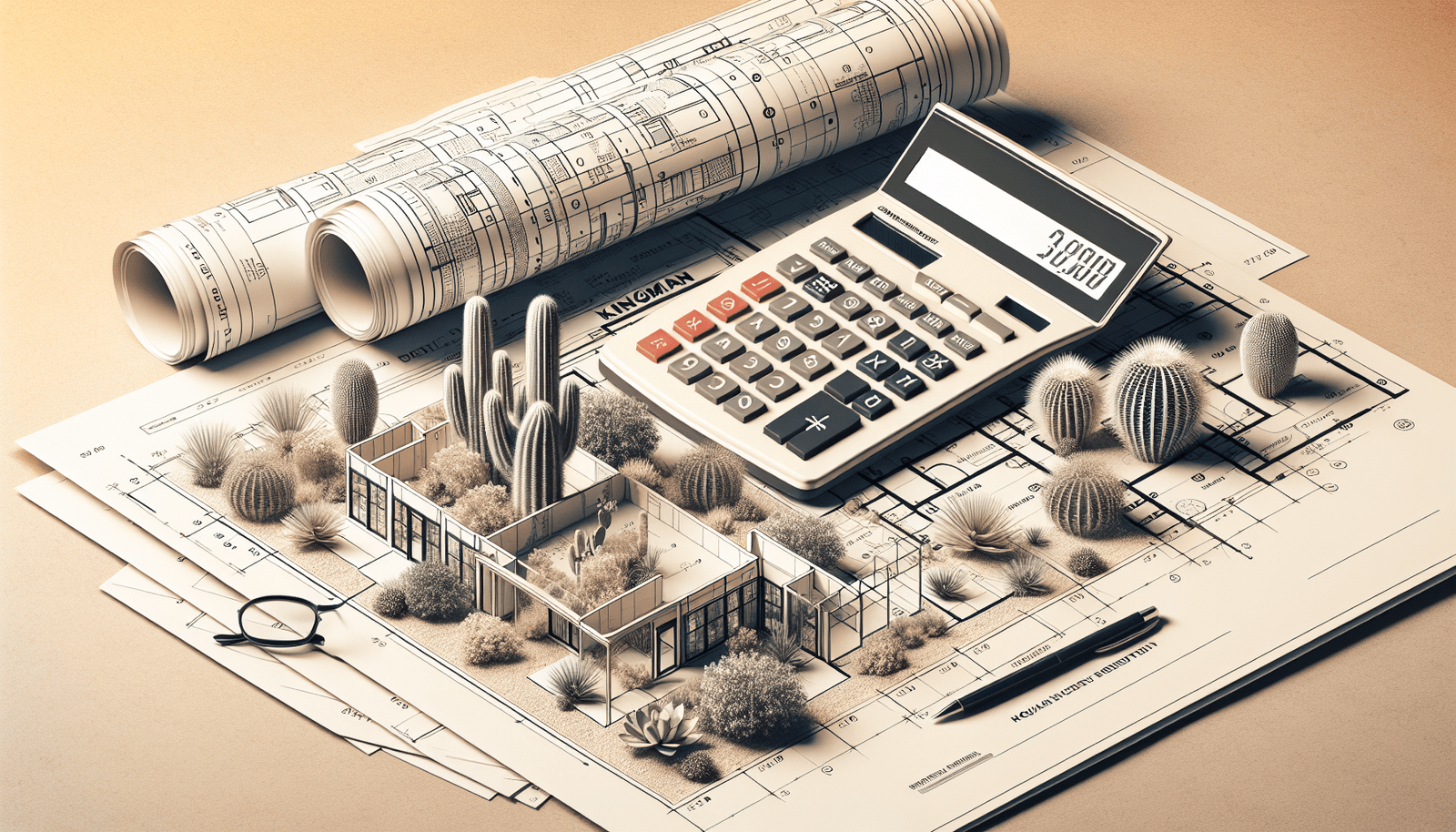Embarking on a home renovation journey in Kingman can be exhilarating, yet the path to transforming your space requires a solid plan, especially when it comes to finances. Establishing a realistic home renovation budget is crucial to avoid overspending and ensure your project aligns with your financial capabilities. This article aims to guide you through setting a sensible budget for your home makeover in Kingman, Arizona, helping you make informed decisions that balance your dream outcomes with practical spending.

Understanding Home Renovation Costs in Kingman
Embarking on a home renovation journey in Kingman? It’s an exciting prospect, but also one that comes with its own set of financial considerations. Before you dive in, it’s crucial to get a grasp on what you can expect in terms of costs. This will not only help you plan better but will also ensure that your renovation dreams align with your budget realities.
Average Costs of Home Renovations in Kingman
The average costs of home renovations in Kingman can vary widely depending on the scope and quality of the renovation. While minor updates might set you back a few thousand dollars, major remodels such as kitchen or bathroom overhauls can easily run into the tens of thousands. On average, homeowners might spend anywhere from $25,000 to $75,000 for substantial renovations. Keep in mind, this is a very broad range and your specific project could fall outside of it depending on several factors.
Factors Influencing Renovation Costs
Several variables play into the cost of home renovations. The size of your home, the extent of the renovations, the materials and appliances you choose, and the labor costs in Kingman all contribute to the final price tag. More extensive structural changes, such as knocking down walls or adding square footage, will significantly increase costs. Additionally, choosing high-end finishes or custom fixtures can also inflate your budget.
Cost Comparison with Nearby Areas
Comparatively, renovation costs in Kingman can be more affordable than in larger metropolitan areas but might be on par or slightly higher than in other similar-sized towns in the region. It’s beneficial to research and compare costs in nearby areas as this can give you a better understanding of where your estimates should fall and help you negotiate better rates with contractors.
Setting Renovation Goals
It’s easy to get carried away when planning a renovation, but setting clear, achievable goals can help guide your project to success. Distinguishing between what you need and what you want is critical in this phase.
Identifying Must-Have vs. Nice-to-Have Improvements
Start by making two lists – one for the must-haves and another for the nice-to-haves. Must-haves are improvements that will significantly impact your daily life or are necessary for the safety and functionality of your home. Nice-to-haves, on the other hand, are upgrades that would be great to have but aren’t essential.
Prioritizing Renovations for Maximum Impact
Once you have your lists, prioritize the renovations based on their impact. For example, fixing a leaky roof or updating an outdated kitchen might take precedence over installing a new fireplace. Consider both the practical benefits and the potential to add value to your home.
Long-term Benefits vs. Immediate Satisfaction
Weigh the long-term benefits against the immediate satisfaction of various upgrades. For instance, energy-efficient windows might not be the most glamorous enhancement, but they can offer significant savings on utility bills and increase your home’s value over time.
Creating a Renovation Budget Framework
Establishing a realistic home renovation budget in Kingman means balancing your dreams with what you can afford. A solid budget framework can keep your project on track financially.
Determining Your Financial Limits
First, determine how much you can realistically afford to spend on your renovation. This might involve looking at savings, considering financing options, or deciding on a certain percentage of your home’s value to invest in the renovation.
Allocating Funds for Different Renovation Stages
Break down your overall budget into categories corresponding to different stages or aspects of the renovation, such as demolition, structural changes, finishes, and contingencies. This will give you a clearer picture of where your money is going and help prevent overspending in one area at the expense of another.
Incorporating a Contingency Fund
Unexpected expenses are a common part of home renovations. Allocating 10%-20% of your budget to a contingency fund can save you from financial stress if surprises arise.
Seeking Financing Options
Financing can play a significant role in your renovation project, offering the means to achieve your goals without dipping into savings.
Understanding Different Types of Renovation Loans
Research the various types of renovation loans available, such as home equity loans, personal loans, or specialized home improvement loans. Each has its own set of terms, interest rates, and repayment plans.
Pros and Cons of Financing Alternatives
Consider the advantages and disadvantages of different financing routes. While loans can boost your budget, they also come with interest payments and potentially lengthy repayment periods.
Applying for Home Improvement Grants in Kingman
Investigate if you qualify for any home improvement grants in Kingman which can provide financial assistance without the need to repay. These are often available for energy-efficient upgrades or improvements that increase safety.

Finding the Right Contractors
Your choice of contractor can make or break your renovation project. Take the time to find someone reputable and well-matched to your needs.
Researching Local Contractors with Good Reputations
Start with a thorough search for local contractors who have good reputations and solid reviews. Word of mouth from friends or family, as well as online reviews, can offer invaluable insights.
Getting Multiple Bids for Comparison
Don’t settle for the first estimate you receive. Getting multiple bids can give you a better sense of what your project should cost and help you find the best value.
Checking References and Previous Work Samples
Before making your final decision, check references and ask to see samples of previous work. This will give you confidence in the contractor’s abilities and ensure their style aligns with your vision.
Planning for Permits and Regulations
Navigating the bureaucratic side of renovations is essential for ensuring your project proceeds smoothly and legally.
Identifying Necessary Permits for Renovation
Depending on the scale and nature of your renovation, you may need one or several permits. Research or consult with your contractor about what’s required for your specific project.
Understanding Kingman’s Building Codes and Restrictions
Familiarize yourself with Kingman’s building codes and restrictions to ensure compliance. This can prevent costly adjustments or fines later on.
Budgeting for Permit Fees and Legal Consultations
Include the cost of permits and any necessary legal consultations in your budget. These expenses are essential for legally sound and compliant renovations.
Choosing Materials and Appliances
The materials and appliances you choose can have a significant impact on both the cost and the outcome of your renovation.
Opting for Cost-effective Materials Without Compromising Quality
It’s possible to find materials that offer both quality and value. Research options and ask for recommendations to get the best of both worlds.
Evaluating Energy-efficient Appliances for Long-term Savings
While energy-efficient appliances might come with higher upfront costs, they can lead to substantial savings in utility bills over time, making them a wise investment.
Exploring Local Suppliers and Discounts
Local suppliers might offer competitive prices and discounts on materials and appliances. Building relationships with these businesses can also provide benefits for future projects.
Incorporating DIY Elements
DIY can be a great way to save money on labor costs, provided you have the time and skills necessary.
Identifying Doable DIY Projects to Save on Labor Costs
Evaluate which parts of your renovation you could realistically handle on your own. Even small tasks like painting or simple demolition can reduce your overall costs.
Estimating the Time Commitment and Skill Level Required
Be honest about the time and skill each DIY project requires. Overestimating your abilities or available time can lead to delays and potential extra costs for professional intervention.
Planning for Potential Risks and Mistakes
Every DIY project comes with risks. Plan for potential mistakes by understanding the steps to correct them and knowing when to call in a professional for help.
Scheduling the Renovation
Timing can have a big impact on your renovation, from costs to inconvenience.
Planning Around Weather Conditions in Kingman
Kingman’s weather can affect certain renovation projects, especially those involving exterior work. Plan your renovation for the most suitable time of year to avoid weather-related delays.
Mitigating Disruptions to Daily Life
Renovations can be disruptive to your daily routine. Make plans to minimize the impact, whether that means setting up a temporary kitchen during a remodel or scheduling work during times you’re out of the house.
Coordinating with Contractors for Efficient Workflow
An efficient workflow can keep your renovation on schedule. Work with your contractor to establish a timeline that makes sense and keeps your project moving forward smoothly.
Post-Renovation: Evaluation and Maintenance
Once the dust has settled, it’s time to look back on the project and plan for the future.
Assessing the Renovation’s Impact on Home Value
Evaluate how your renovation has impacted your home’s value. This could be beneficial for insurance purposes or if you’re considering selling in the future.
Setting Up a Maintenance Schedule for New Features
New features or systems in your home may require different maintenance than before. Establish a schedule to keep everything in top condition.
Learning from the Renovation Process for Future Projects
Reflect on what you learned during this renovation process. What would you do differently? What worked well? This knowledge is invaluable for any future renovation projects.
By taking a comprehensive and well-informed approach to your home renovation in Kingman, you can make the most of your budget and achieve results that you’ll enjoy for years to come.

